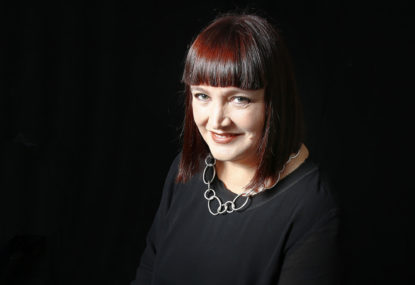For many years, to mention Rugby Australia (previously the ARU) and ‘lunch’ in the same sentence was enough to elicit howls of derision from grassroots rugby fans.
Fans would be indignant that their club subscriptions and gate money were funding long, hazy afternoons exploring the cellars and dry-aged beef on offer at well-heeled Sydney north shore and city establishments.
New CEO Raelene Castle has been lunching hard too, last week driving a punishing schedule in Melbourne, built around the second Wallabies versus Ireland Test match. But rather than distance herself further from rugby’s core constituency with each glass of vintage merlot, Castle is instead realising an opportunity to bring her organisation closer to rugby people at all levels.
From inside the stuffy, mysterious world of Melbourne’s select ‘gentlemen only’ private clubs, to the inspiring and uplifting annual Weary Dunlop lunch, to a modest Moorabbin Rugby Club event, Castle has been tirelessly treading Victoria’s rugby boards, not only spreading the gospel about the great game and Australia’s place in it, but signaling a change in direction and fortune for Australian rugby.
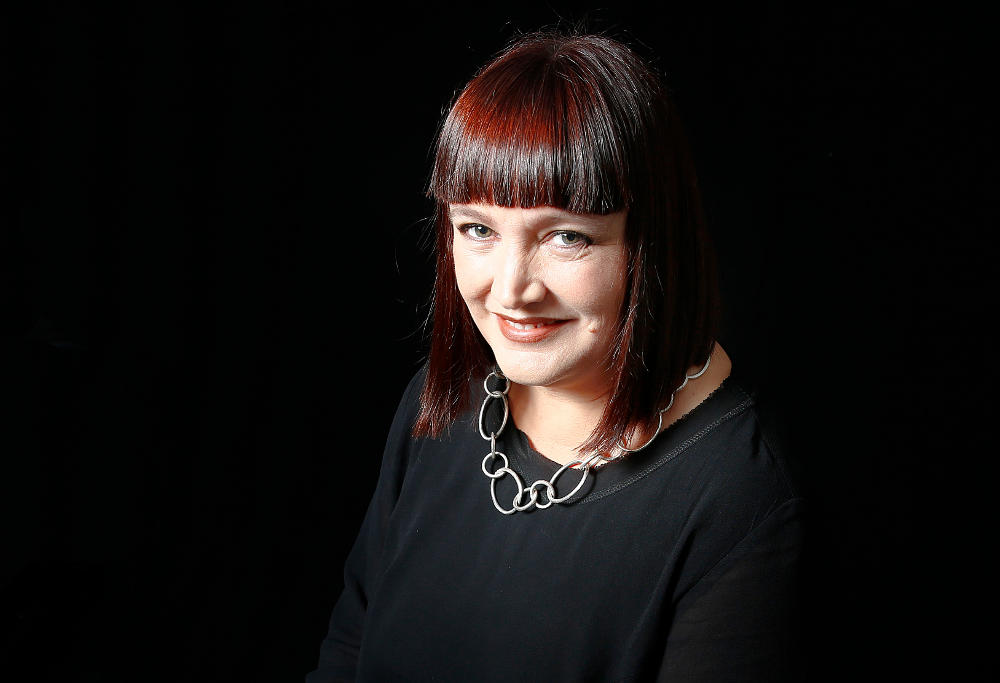
Raelene Castle (AAP Image/Canterbury-Bankstown Bulldogs)
Castle has been in the job for a short while – only five months – but because Australian rugby’s turbulent recent history, including fallout from the resignation of Wallabies’ coach Ewen McKenzie, Super Rugby performance dropping off a cliff since the 2015 Rugby World Cup, and the upheaval surrounding the termination of the Western Force from Super Rugby, it feels like a longer baptism of fire.
“No doubt it’s been a tumultuous period, full of uncertainty”, she admits. “But the nature of this job is that things come at you and you have to ride with the punches. All of that feeds into a negative dialogue, but I do believe that we are transitioning into a period of positive change for the game, as a result of some of the hard work that has been put in across all levels of rugby.”
Recent achievements roll off Castle’s tongue; “Since the gold medal success in Rio 120,000 women have touched the game who are new to rugby, and clubs around the country are noticing strong growth in women’s participation. Initially I was concerned about an imbalance in the Super W series, but we had an amazing, extra-time final, and it is obvious that with the consistency of engagement and the benefits of increased familiarity, strength and conditioning, and coaching, further improvement will come fairly quickly.”
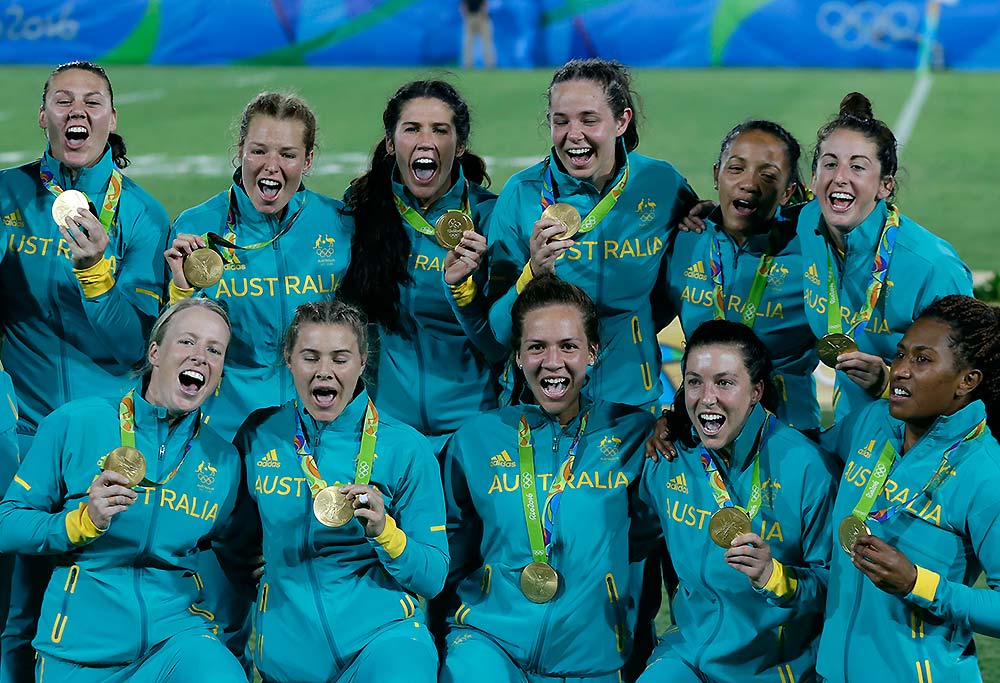
(AP Photo/Themba Hadebe)
“With grassroots rugby, we have introduced new initiatives around ‘size and age’, ‘blue card’, ‘touch 7s’ and the ‘get into rugby’ program, responsible for the addition of 70,000 new participants. On top of that we have the introduction of the AON Sevens, Super W was launched, and of course the NRC will later this year enter its fifth season.”
But for all the good work being done, Castle is acutely aware that for as long as there is lack of success at the top level, the effect is to drown out everything else; “It’s true that the shop window must be attractive for us to get the benefit from all the work being done at the grassroots level”, she explains.
Aiming a significant share of responsibility to fix it squarely at the Wallabies and Super Rugby programs, Castle describes how, “sport is all about winning, or at least a fan believing that when they buy a ticket, their team has a good chance of success”.
More than two million Australians tuning in, in the middle of the night to watch Australia compete in the 2015 World Cup final, speaks to latent interest in the game, and the fortunes of the Wallabies. But with no Bledisloe Cup success since 2002, and Super Rugby franchises finding it almost impossible to win against their New Zealand counterparts, confidence in the game has ebbed away.
That there is a connection between on-field success and key indicators is illustrated by last year’s AFL premier, perennial battler Richmond, recently announcing an increase from 72,669 paid up members in 2017, to an incredible 96,000 and counting, this year – a stark reminder of an Australian penchant for ‘bandwagon jumping’.
Castle prefers to consider it ‘backing a winner’ and is acutely aware of the opportunity that exists for Australian rugby, should they get their high performance house in order.
“What we saw from the Wallabies in Brisbane (in their 18-9 first Test win) was great commitment and effort right through to the 80th minute. I believe we’re seeing improvement too at Super Rugby level, reflective of things like the elite level data sharing which is now taking place between Michael Cheika and all of the Super Rugby coaches.”
Sustained lack of success at the top level hurts because it not only affects casual fan engagement and the morale of supporters, but it impacts the bottom line, making already fickle revenue streams even more uncertain. “I certainly watch a match now with very different eyes than I did as a fan”, she laughs.
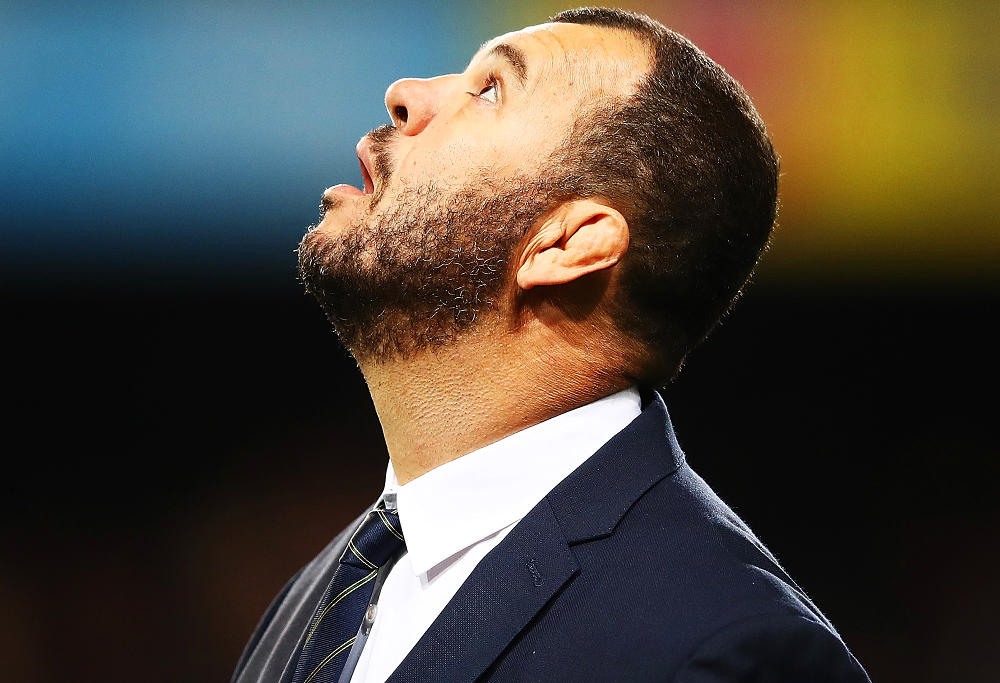
Michael Cheika (Photo by Hannah Peters/Getty Images)
Her inference is clear – it is crucial that Rugby Australia, through the state bodies, reconnects with grassroots rugby people, at all levels. But this is made far easier if fans’ expectations of success at the top level are matched by effort and performance.
For better or worse, Australian rugby’s fortunes are entwined in a southern hemisphere brotherhood of nations. SANZAAR recently finalised a strategic plan designed to set a framework for operation up until 2030.
Despite recent widespread panic and speculation that South Africa were about to extricate themselves, Castle has no doubt that they remain committed to the partnership, and confirms that all parties are working constructively together ahead of what will be a crucial negotiation period for the next round of broadcasting rights.
The downward pressures on the value of those rights are undeniable – witness SANZAAR’s reaction to cut three franchises from Super Rugby in 2017 at the behest of unhappy broadcast partners – but Castle is cautiously optimistic.
“For traditional media, sport’s big advantage is the value we create in terms of immediacy and relevancy. Sport continues to be the thing broadcasters can’t time shift – like they can, for example, a popular TV series. But we understand that the value is only there for them if the product is great and it creates demand.”
There is also potential in the shape of new digital media players; “The trend is for some of the big market sports to branch into retaining their digital content and to control their own broadcasting. We aren’t in that position yet – our market isn’t big enough to justify the cost – nor is that compatible with focusing on grassroots development and getting our own house in order. But we also know that this landscape can and is changing very quickly.”
Castle acknowledges that, despite an improved 2018 season, Super Rugby continues to face challenges, and hints at the potential for improvement in some aspects of marketing and governance. “I do think there is opportunity to provide a more definitive look and feel for Super Rugby wherever it is played, and that there is a holistic challenge for SANZAAR to communicate better and to deliver our strategy more consistently.”
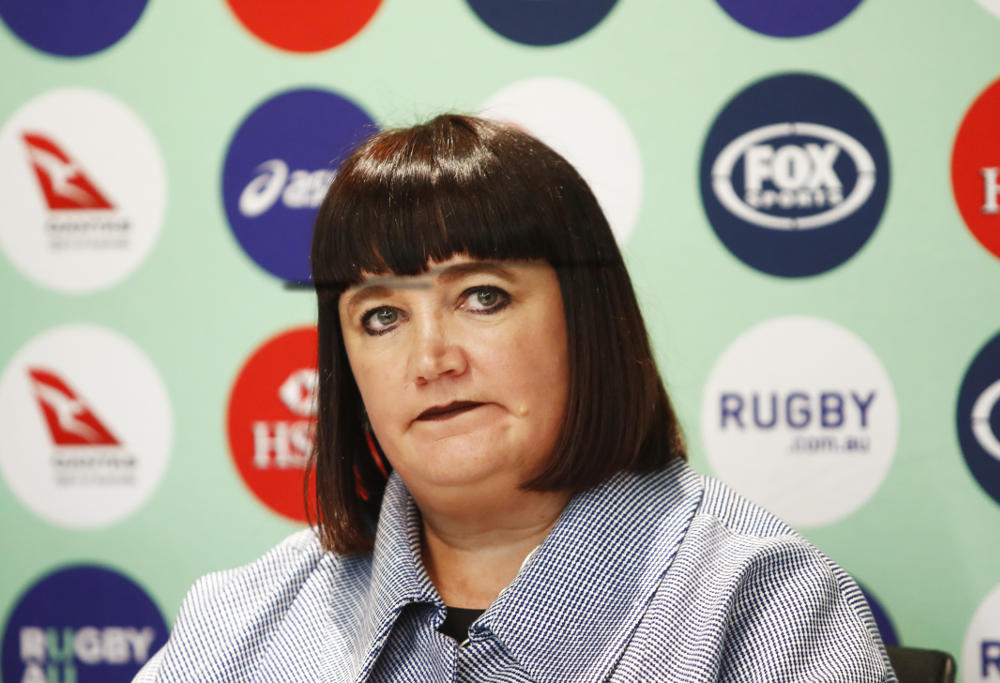
(AAP Image/Daniel Munoz)
Castle also notes how Netball New Zealand (where she was CEO from 2007-2013) and World Rugby have benefitted from the addition of independents to their boards. While SANZAAR’s member unions will not cede anything that potentially diminishes their flagship Test teams, she hopes that the consideration being given by SANZAAR to the addition of two new, independent board members might provide a better balance between improving Super Rugby and maintaining the Test rugby success which saw the partners fill all four semi-final spots at the 2015 World Cup.
While revenue from broadcasting rights – through the SANZAAR broadcast agreement – effectively funds Australian rugby, Castle and her team are working hard to generate more cash for the game in other areas.
“We can do more to maximise the Wallabies brand, from an international perspective. We’re consistently ranked in the world top four, that puts us in a very strong position from a commercial partner perspective and, as an example, we’ve just partnered with Mitsubishi Estate for the current Ireland series, who are a Japanese brand looking to make a mark in Australia.”
More is expected this year too, from the NRC; “Changes in the structure have been made to make it more logical, we will have things in place this year to make it more visible, and we are also looking to NSW Rugby and Queensland Rugby to work with their fan and membership bases to deliver some of that engagement growth that we’re looking for”.
So if Castle is cautiously optimistic around both the commercial prospects for the game in Australia, and elite on-field performance starting to improve, what about the negative stories that have dominated recent headlines? The furore surrounding comments made by star fullback Israel Folau for example – an issue described by Castle as the most difficult she has had to deal with in her time as a senior administrator?
[latest_videos_strip category=”rugby” name=”Rugby”]
“I’m very happy that the Wallabies team have got on with things, discussed the matter maturely and respectfully, and that the issue just isn’t a factor”, she says, as if to validate the ‘sensible middle ground’ approach she took to what was an emotionally wrought argument on both sides.
“I’ve said it consistently and will continue to say, I’m an absolute believer in freedom of speech and that everyone has a right to their perspective, but it needs to be expressed in a respectful way.”
And what of the hostile reaction in Western Australia to the termination of the Western Force from Super Rugby? “Our focus is on the WA rugby community regardless of what happens with World Series Rugby, and we are working very closely with John Edwards and Bob Hunter in WA to ensure that they can continue to deliver at a community level.”
“As for Andrew Forrest, we endorse and support World Series Rugby in terms of things like providing referees, event management experience, compliance with World Rugby and so on – everything you’d expect us to do. What he’s done is great for WA, he’s giving fans a real focus, and putting some ‘rah rah’ around that too.”
But as for any detail around when, what and how for World Series Rugby in 2018? And what that might mean for Australian rugby in the future? At this stage, it seems that Castle will find out when the rest of us do.
Our discussion shifts to the elements that drew Castle and Rugby Australia together – personal qualities like her consultative style and ability to build relationships, and the fact that, as an ‘outsider’ or ‘neutral’, she brings no baggage to the role (qualities confirmed by staff working within the organisation).
She explains further; “We don’t have the size or commercial clout of a big organisation like the AFL who might employ a ‘carrot and stick’ approach, therefore it’s important for me to have the skills to be able to bring people together and get outcomes that way.”
It’s a theme that was nicely illustrated two weeks before, when Melbourne Rebels coach Dave Wessels – another ‘outsider’ – stood down Will Genia from a Super Rugby match at the request of Wallabies coach Michael Cheika, and called for all people in Australian rugby to start working together for the greater good of the game.
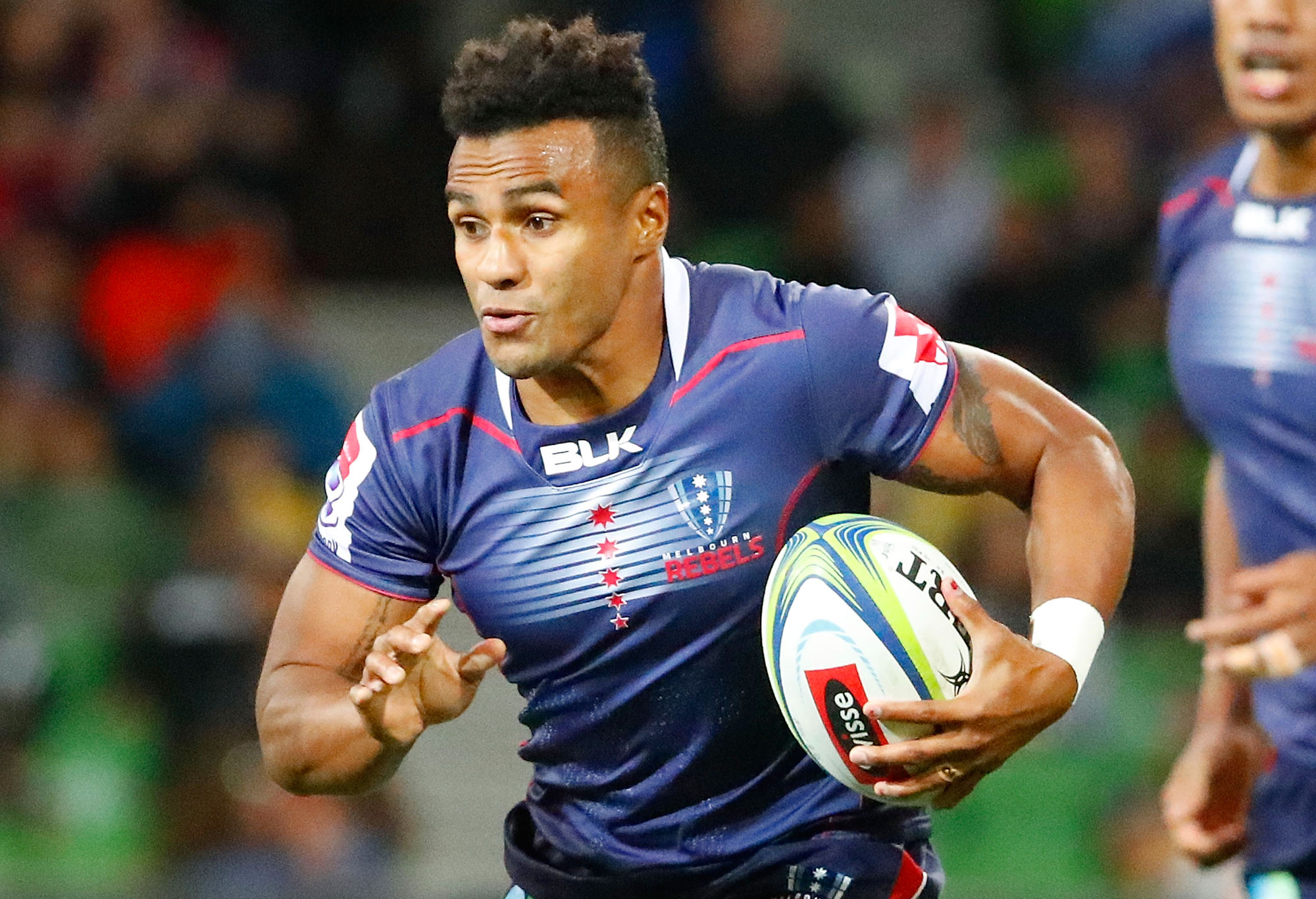
(Photo by Scott Barbour/Getty Images)
Castle accepts that her leadership is key to making that happen. “Even despite there being a tier of fans and high profile ex-Wallabies who still seem to think that it’s 1984?” I ask, noting how Australian rugby in the professional era cannot cocoon itself from what is a competitive global market for players and coaches, and an equally competitive domestic market for sponsor dollars and visibility?
“It’s a challenge for all of us in the game to ensure that the discussion around the game is relevant to today”, she answers.
“We (Rugby Australia) need to deliver a trust and belief in participants and supporters that we can deliver the best outcomes for rugby in Australia. That’s our job, to lead and enable, so that both the high performance and community levels of our sport are made better. If we can use our resources to achieve that, then that’s how we will earn respect and enjoy what will be a two-way benefit.”
“That’s the way to break down those barriers, so that people inside rugby can see and feel that things are improving. That’s what we’ll be measured by”, she concludes.
It’s a compelling argument, made convincingly and genuinely. Raelene Castle might well have taken a tiger by the tail, but it seems she wouldn’t be anywhere else right now, working to unlock and realise the potential that – despite all of the recent negativity – rugby has in Australia.





























































































